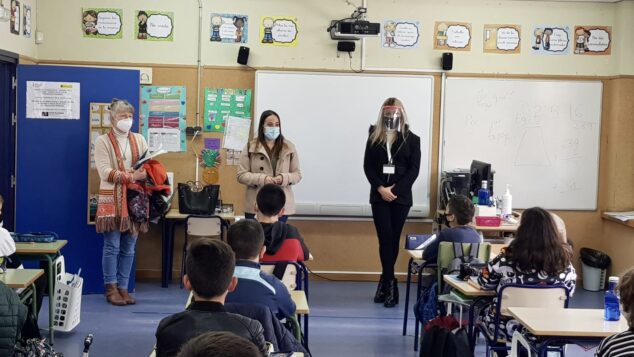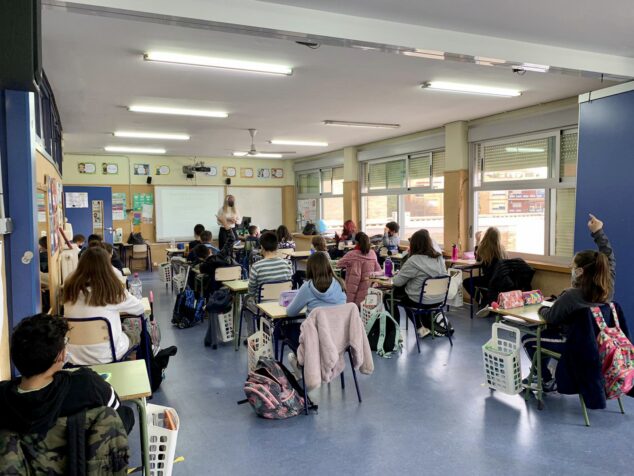The Department of Addiction Prevention, with the collaboration of the Associated Center of the UNED of Dénia, has organized the second part of the Social Skills workshop for the 2020/2021 course aimed at 6th grade students. The sessions, coordinated through the Community Prevention Unit in Addictive Behaviors (UPCCA) of the council, will take place, between March 1 and 10, in eleven educational centers in Dénia, la Xara and Jesús Pobre, with the participation of 546 schoolchildren.
The objective of the workshop is for students to acquire, develop and improve competencies related to social skills, providing them with tools that allow them to have an adequate interaction in different social contexts and facilitate the control of behavior in different situations in which they may find themselves. throughout life.
The students, through play, visualization, analysis and reflection of real situations, work on social skills to improve them in their relationships and interactions, both with equals and with other people; and also learn to improve the handling and management of conflict situations. In this workshop, self-esteem, empathy, assertiveness, decision-making, influence and peer pressure are mainly worked on.
It intervenes with a dynamic and motivating methodology that favors group participation with the use of audiovisual material to promote these participatory dynamics. In the current pandemic situation due to COVID-19, and unlike other years, the exercises are in the classroom, without mobility of the chair or physical contact between the students.
In the first part of the workshop, held in November 2020, the students proposed to write anonymously the concerns and conflicts that could arise in the classroom and that they did not know how to resolve. The most common conflicts they reported revolved around:
- Teasing, insults and speaking badly to classmates and teachers.
- Physical aggressions, either through fights or as acts "in joke".
- The nicknames.
- The pressure to do things they don't want to do.
- Lack of self-control.
- Not knowing how to ask for forgiveness.
- Teasing and discrimination towards physical appearance, sex, gender, sexual orientation and ethnicity.
Therefore, this second part of the workshop focuses on:
- Encourage the acquisition of communication skills to become aware of the consequences of ineffective communication.
- Know how to deal with the influences and / or pressures of the group.
- Be autonomous in making decisions.
- Assume your own responsibilities.
After these lines to follow, the 4 dynamics have been proposed in which close and real everyday situations are shown to the students:
The first of the activities wants to promote a correct development of communication skills. Both verbal and non-verbal communication and assertiveness are worked on and promoted through a set of images. Emphasis is placed on the importance of listening, observing and not rushing to avoid conflict. This activity is linked to the answers given in the previous session of the workshop given in November.
The second activity: after an introductory short film on self-control, the development of strategies to express and share feelings is encouraged. The students are also asked questions about the capacity for self-control, avoiding aggression and promoting forgiveness.
In the third activity, a short about assertiveness is viewed in order to analyze the communication style used by the protagonist. The different styles of communication are analyzed and the typical errors that can lead us into conflict are worked on.
In the fourth activity the students have to identify situations in which they have been not very tolerant and have felt pressured by the group. Making this identification allows them to face group influences and / or pressures and assume their own responsibilities.
Once each session is over, the teachers complete a questionnaire in order to evaluate the incidence of the activity and its practical utility. In the responses, the teachers emphasize that working on social skills is essential to help students in their development and, in fact, some have already been working on these concepts in the classroom throughout the course.
Last Friday, the Councilor for Addiction Prevention, Melani Ivars, attended one of the sessions given at CEIP Llebeig to see the dynamics of this activity.








